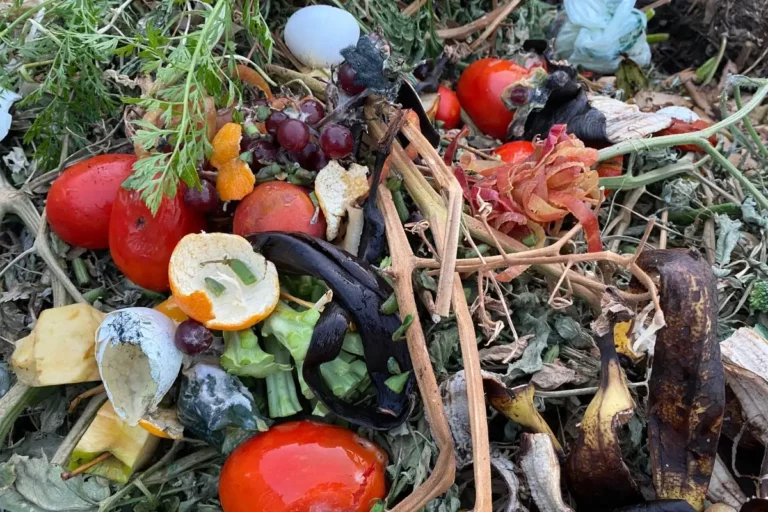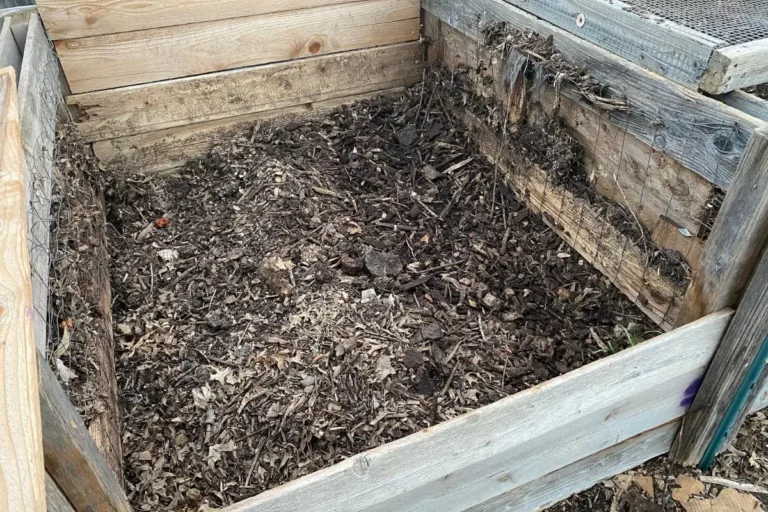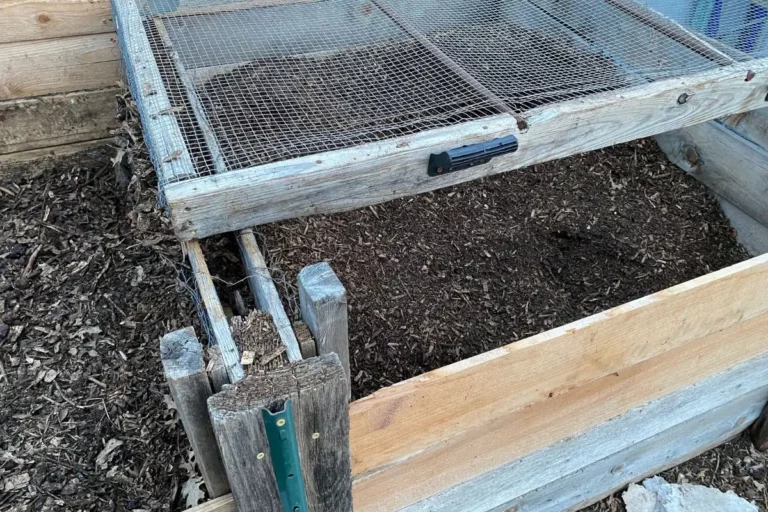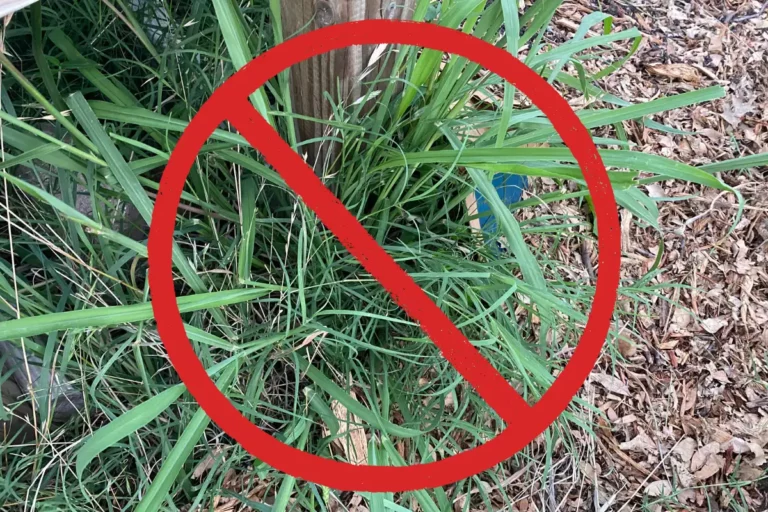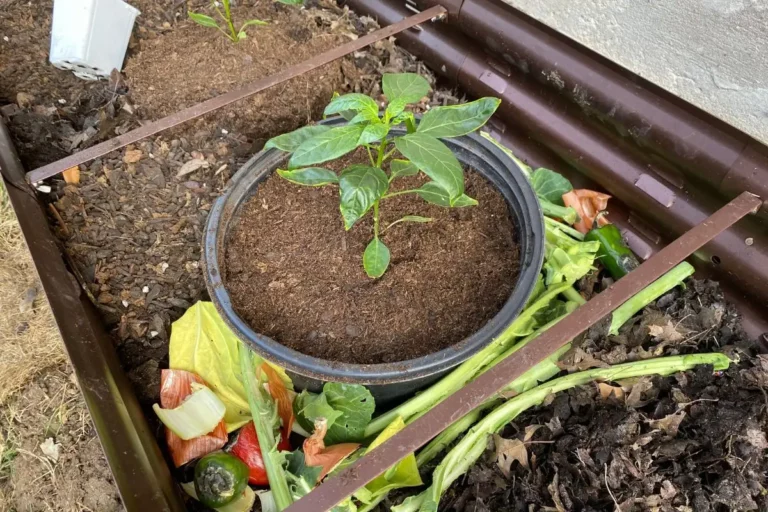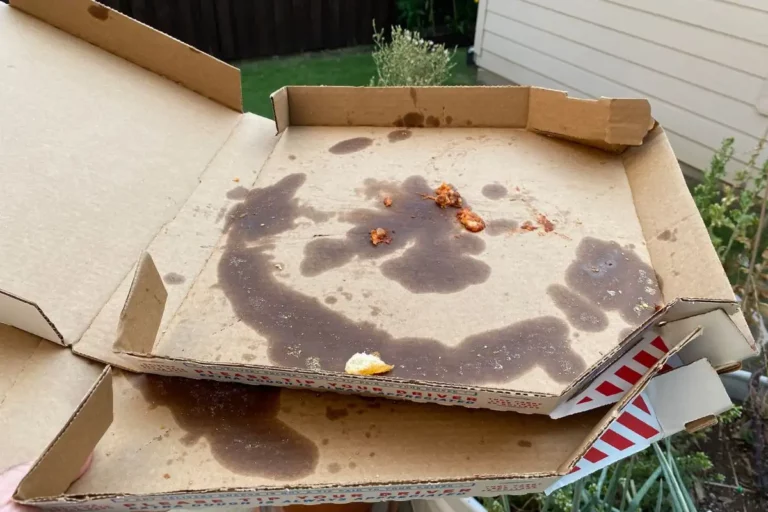Compost vs. Fertilizer: What’s Best for Your Garden?
Whether you’ve just started gardening or you’ve been growing plants for years, the more you understand the significance of both compost and fertilizer, the better your plants will benefit from each.
It’s not enough to haphazardly try both throughout the year. For best results, you’ve got to know the when, where, and how of using each in your garden.
Made up of decomposed organic matter, compost will enrich soil structure and enhance moisture retention over time, while fertilizer will provide direct essential nutrients to plants. Compost is best when added regularly, while fertilizer should only be used to amend soil nutrient deficiencies.
Compost and fertilizer are game-changers for any gardener since they’ll help your plants flourish when applied correctly.
However, what’s best isn’t always clear-cut—and it often hinges on your plants’ current state and the condition of your soil—so here are the topics I’ll cover in this article:
- The differences between compost and fertilizer.
- The pros and cons of each why you might choose one over the other depending on how your plants are doing.
- Several tips on using compost and fertilizer together in your garden.
Before I cover the details below, I thought I’d share which products I use in my backyard garden in case you’d like to do what I do.
Now that that’s covered, let’s take a look at compost and fertilizer and why you’ll want to use both in your garden at some point or another.
What’s the Difference Between Compost and Fertilizer?
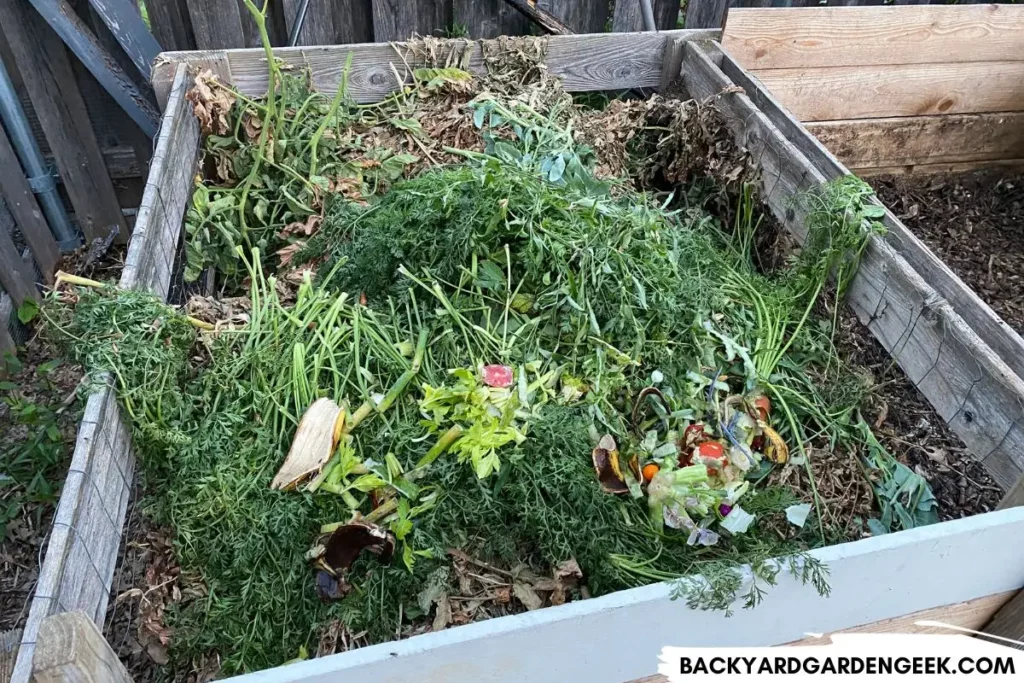
Compost is the result of organic matter, such as kitchen scraps, garden waste, and yard trimmings, undergoing a decomposition process. Over time, microbes break these materials down into a nutrient-rich, earthy substance that’s great for your garden beds.
Here are the most common nutrient components found in finished compost:
- Nitrogen: An essential component for plant protein synthesis, which aids in rapid growth, promotes lush foliage, and helps with cell functions.
- Carbon: Acts as a primary energy source for microbes during the decomposition process. A healthy carbon-to-nitrogen ratio ensures efficient composting.
- Phosphorus: Supports energy transfer within plants, aids in seed and fruit development, and promotes strong root growth.
- Potassium: Crucial for overall plant health. It aids in photosynthesis, protein synthesis, and improving plant hardiness against diseases.
- Other Minerals: Compost usually contains trace amounts of calcium, iron, magnesium, and sulfur.
Given all of these chemical properties, compost is great for your garden for several reasons:
- Compost enhances soil structure, making it easier for roots to grow.
- Compost improves water retention in sandy soils and drainage in clayey soils.
- Compost introduces beneficial microorganisms that help suppress diseases.
- Compost reduces the need for chemical fertilizers.
- Compost recycles kitchen and yard waste, minimizing landfill contribution.
Unlike compost, fertilizer is a product that’s added to soil to enhance growth. It can be organic (derived from plant or animal sources) or synthetic (manufactured chemically).
I tend to prefer organic fertilizers (like Alaska fish emulsion), but I’ll use chemical fertilizers if a) I trust the brand and b) I know what my soil needs.
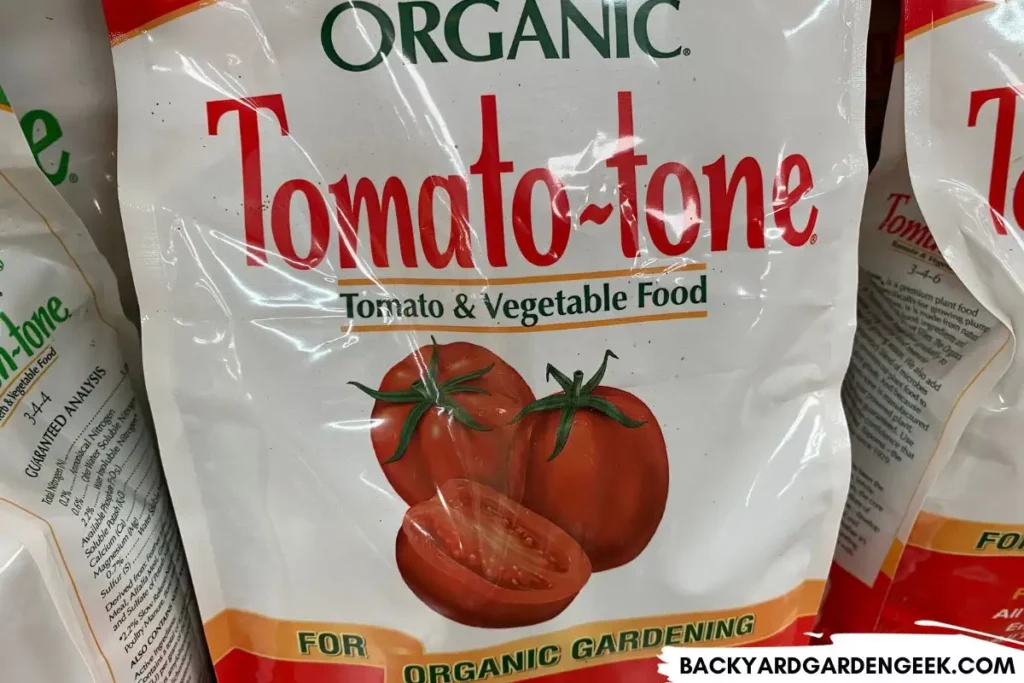
Here are the nutrients you’ll typically find in both organic and synthetic fertilizers:
- Nitrogen (N): Promotes healthy leaf growth by aiding in chlorophyll synthesis, which is essential for photosynthesis.
- Phosphorus (P): Encourages root development, flowering, and fruiting.
- Potassium (K): Boosts plant’s resistance to diseases, aids in photosynthesis, and regulates various plant functions.
- Other Minerals: Fertilizers might have additional minerals added to them by their respective suppliers (such as calcium, sulfur,
When you see the letters “N-P-K” on fertilizer bags, it’s a shorthand for the three major nutrients: nitrogen, phosphorus, and potassium.
The numbers beside each letter represent the percentage of each nutrient in the fertilizer. For instance, a fertilizer labeled “10-20-10” contains 10% nitrogen, 20% phosphorus, and 10% potassium.
This means that your garden will benefit most from fertilizer if you’ve requested a soil test and know which chemical components your soil’s currently lacking.
Here are the benefits of using fertilizer in your garden:
- Provides plants with immediate nutrient boosts, especially when there’s a deficiency in the soil.
- Allows gardeners to target specific deficiencies by choosing a fertilizer with the right NPK ratio.
- Comes in various forms (liquid and granular) to suit different application methods.
- Enhances growth rate, flowering, and fruiting when used correctly.
Now that I’ve given you an overview of each, here’s a quick summary that highlights the differences between compost and fertilizer:
| Characteristics | Compost | Fertilizer |
|---|---|---|
| Source | Decomposed organic matter | Organic or chemical ingredients |
| Nutrient Release | Slowly and steadily over time | Quickly (especially when using synthetic fertilizers) |
| Main Components | Nitrogen, carbon, phosphorous, potassium | Nitrogen, phosphorus, potassium |
| Function | Improve soil structure and overall health | Provides plants with essential nutrients |
| Environmental Impact | Eco-friendly, reduces waste sent to landfills | Can lead to runoff and environmental problems if applied incorrectly or too heavily |
| Use | Best for maintaining long-term soil health | Best for addressing immediate nutrient deficiencies |
Now that you know the main differences between compost and soil, let’s look at why each might be better for your plants depending on the current condition of your garden and its soil.
Which Is Better: Compost or Fertilizer?
Both compost and fertilizer can be beneficial for your garden, depending on your circumstances.
But let’s first debunk the common misconception that more compost always equals a healthier garden.
This isn’t necessarily true because if you’re generously piling on compost when your garden’s thriving in full spring bloom, you might not be aiding your plants as much as you think. You could even kill them if you pile the compost too high up against their central stalks.
That being said, let’s look at a few potential problems that can arise if you overuse compost in your garden:
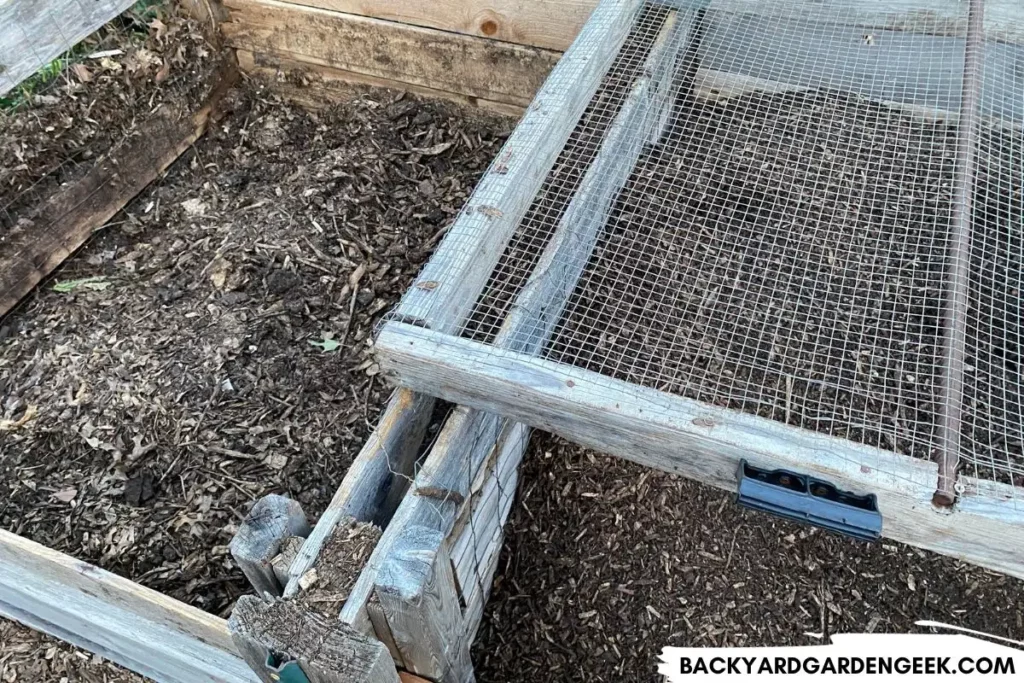
- Nutrient Imbalance: Excessive compost can cause an overabundance of certain nutrients, which isn’t helpful for your plants.
- Soil Structure Disruption: Too much compost can even cause your native soil to compact a bit, upsetting the balanced ecosystem that exists below the ground.
- Plant Diseases and Weed Seeds: If you’ve added diseased plant material to your compost—or if you’ve been careless about adding weeds to your compost as well—you might unintentionally spread diseases and weed seeds to different parts of your garden.
- Pest Spread: The same goes for pests like aphids, armyworms, squash bugs, spider mites, and whiteflies. If you add infested plant material to your compost, those bugs might remain alive and continue reproducing. The moment you spread the compost, you potentially spread their progeny as well.
Similarly, the “more is merrier” approach doesn’t work at all when using fertilizer in your garden.
Here are some potential problems when it comes to fertilizer overuse:
- Nutrient Burn: Too much fertilizer can lead to an excess of salts in the soil, causing plants’ roots to shrivel and burn.
- Disrupting Soil pH: Using the wrong fertilizer can change soil pH levels, making certain essential nutrients unavailable to plants.
- Environmental Concerns: Over-fertilization can cause chemical runoff into nearby storm drains or water sources. In the process, you might harm parts of your or your neighbors’ properties.
Now that I’ve covered the potential downsides of overusing both compost and fertilizer, let’s look at those times when you should definitely consider adding compost to your garden, as well as those times when it’s perfect to consider fertilizing your garden beds and containers.
When to Use Compost Instead of Fertilizer
- Before planting a new garden or bed.
- At the onset of the growing season to prepare the soil for this year’s garden.
- When trying to improve the texture and water retention of sandy soils.
- To introduce beneficial microbes into sterilized or bagged soils bought at garden centers or home improvement stores.
- As a top layer or mulch during dry spells to retain soil moisture.
- At the end of the growing season to improve the soil for next year’s garden.
When to Use Fertilizer Instead of Compost
- When plants exhibit signs of nutrient deficiency, like yellowing leaves or student growth.
- For quick boosts during key growth phases, like flowering or fruiting.
- When targeting a specific nutrient deficiency identified through soil tests.
- For container plants that require consistent nutrient amendments.
You can generally add compost to your garden without causing much of a problem, but you shouldn’t start adding lots of fertilizer without understanding what’s going on in your soil.
Before doing anything drastic, please do a soil test first. Reach out to your local university extension office or government agency. The report they send you will explain what’s going on with your soil’s nutrient levels and pH, which can make a world of difference when it comes to future soil amendments.
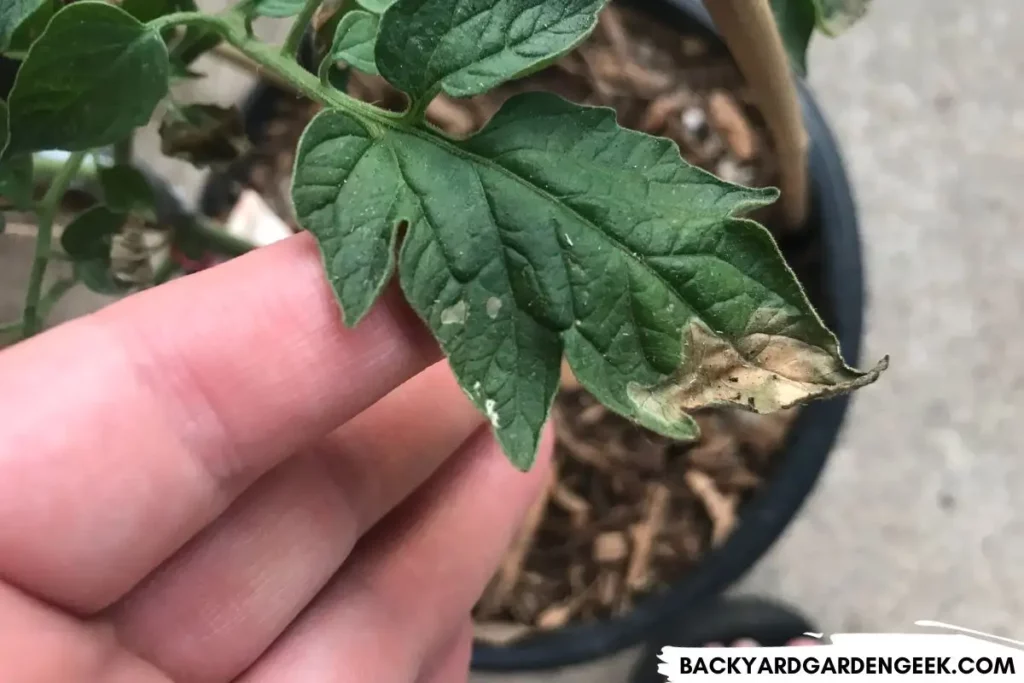
I mentioned fertilizer burn above, and this can be a major problem if you’re not careful.
This kind of burn is the damage done to plants by excessive fertilization, leading to high concentrations of minerals in the soil. The result? Browned, wilted, and withered plants that look like they’ve been scorched.
If you’re worried about fertilizer burn, please do this:
- Always follow the recommended dosage on fertilizer packages. Never randomly add fertilizer to your garden!
- Consider slow-release fertilizers that gradually provide nutrients.
- Regularly water your garden, which helps dilute and distribute fertilizers evenly.
But what should you do if you’ve already burned your plants?
First of all, don’t worry. Your plants can often recover depending on the damage you’ve accidentally done to them.
Here’s what you can do to help your plants recover:
- Remove any visible fertilizer from the soil surface.
- Thoroughly water the affected areas multiple times to hopefully leach out excess minerals.
- Prune damaged parts of the plant to encourage new growth.
- Avoid adding any more fertilizer until the plant shows signs of recovery.
Long story short, both compost and fertilizer serve vital roles in your garden, each with its own set of rules and ideal times for use.
As you’ll see below, you can even use them in tandem, maximizing benefits and minimizing potential pitfalls.
Here are some related composting articles that you might be interested in:
- 50 Plants You Should Never Compost (and Those You Should)
- 50+ Cheap Nitrogen Sources for Your Compost Pile
- Can You Compost Directly in the Soil? (Do It the RIGHT Way)
- Do Raised Beds Need Yearly Compost? (Here’s What to Do)
- Filling Raised Beds with Just Compost: Should You Do It?
- Should Compost Be Tilled In or Mixed with Soil?
Can You Use Compost and Fertilizer Together?
I don’t often put down both compost and fertilizer at the same time, but when used together under the right circumstances, they can enhance each other’s strengths, creating a nutrient-rich environment for plants.
Before delving into the specifics, let’s look at why you might consider this dual approach:
- Comprehensive Nutrient Infusion: Compost offers a slow-release, broad array of nutrients. Fertilizer, especially synthetic types, provides a quick nutrient shot, catering to immediate plant needs.
- Enhanced Soil Structure: Compost is excellent for soil texture, promoting moisture retention and aeration. Fertilizer doesn’t directly improve soil structure but ensures plants get essential nutrients efficiently and thus develop hardy root systems.
- Beneficial Microbes: If you’ve got a compost bin on your property, your finished compost will teem with microbes beneficial for soil health (less so for bagged compost). These organisms can help in the efficient uptake of fertilizer nutrients.
- Eco-Friendly Gardening: Compost is essentially recycled organic matter. By balancing its use with fertilizer (especially organic fertilizers), you’re optimizing resource use and reducing your dependency on fertilizers.
Last but not least, here’s a step-by-step guide for how to compost and fertilize your garden at the same time:
1. Select Quality Compost and Fertilizer
Whether you’re making it at home or buying it, compost quality is super important. A good compost smells earthy and is dark, crumbly, and moist but not wet. Steer clear of compost that smells foul or looks too dry.
Your best option is to make your own compost (assuming you have room to do so), but there are certain brands of compost that are great, although they tend to cost a bit more than the cheaper brands.
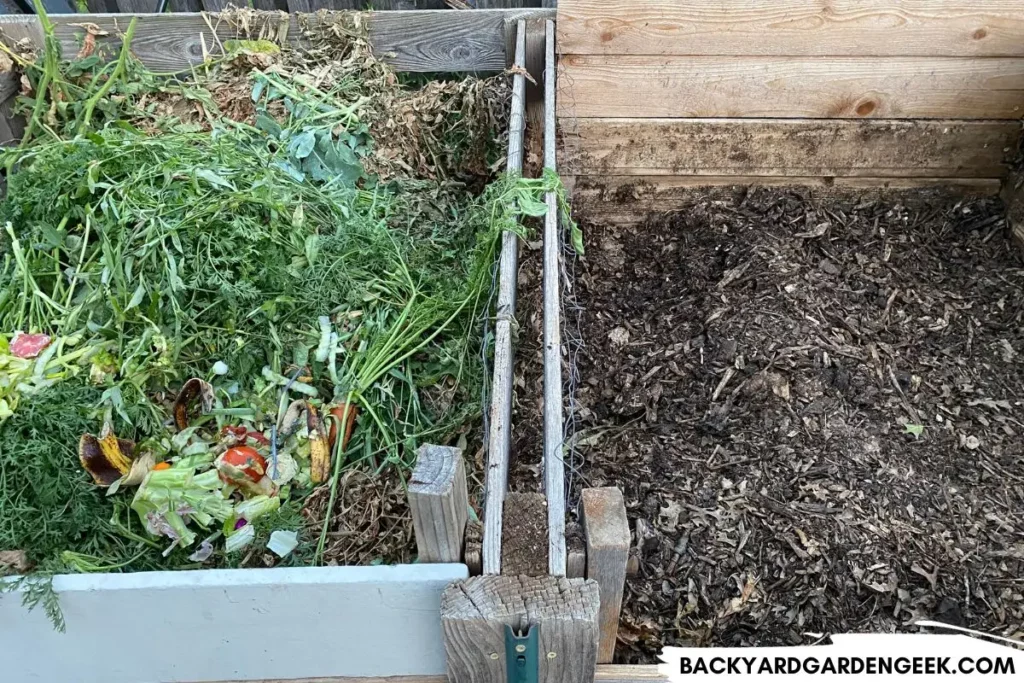
Depending on the specific needs of your garden, choose a fertilizer with the appropriate NPK ratio. Organic options, like bone meal or fish emulsion, are wonderful, but synthetic ones offer quick nutrient delivery if you’ve done a soil test and know exactly what’s going on beneath your soil.
2. Figure Out How Much to Use
A 3-4 inch layer of compost is ideal when preparing garden beds. For established gardens, lightly top-dressing the soil surface works well. The idea is to enrich the soil without smothering it.
For fertilizer, always stick to the manufacturer’s guidelines because overdoing it can cause more harm than benefit. Each bag will tell you when, how, and how much to apply to your garden.
3. Choose the Right Time and Method
I prefer to add compost to my garden in early spring (before I’ve planted my seedlings) and late fall (after I’ve pulled up the plants that are done for the season). You can either mix your compost into the topsoil or spread it as a top layer. For perennial plants, consider adding compost in late fall, letting it break down over winter.
When it comes to fertilizer, everything depends on your garden’s needs. A slow-release granular fertilizer is best applied in spring, giving plants a season-long nutrient supply. Liquid fertilizers like fish emulsion can be applied more frequently, often every 1-2 weeks.
4. Monitor and Adjust
Notice any yellowing leaves? That might indicate nitrogen deficiency. Purple-tinted leaves could hint at a phosphorus shortage.
Even with compost and fertilizer, soil pH can influence nutrient uptake. Regularly check your plants for signs of decay or stunted growth, and do a soil test if you haven’t done one already.
After a year or so, consider doing another soil test. That way, you’ll know if your compost and fertilizer amendments solved your problem or if you need to keep amending your soil.
5. Avoid Potential Pitfalls
Nutrient burn can occur when over-fertilization causes plants to “burn” due to high mineral concentrations. Symptoms include brown or yellow leaf tips and wilting.
Both compost and fertilizers influence soil’s water retention. You’ll want to adjust your watering habits to prevent over or under-watering.
Long story short, choosing compost or fertilizer isn’t an either-or choice. Both have their place in your toolkit, and when used judiciously, they can complement each other just fine.
But as with all things gardening, there’s an art to it.
Plants won’t do their best with fertilizers alone. They’ll benefit most from the rich, varied nourishment compost brings. However, during growth spurts or stressful times, a quick nutrient boost from fertilizers can be a lifesaver in ways that compost won’t.
As you experiment with both composting and fertilization, you’ll learn to read the subtle cues from your plants and soil. Until then, keep doing your research, experiment in moderation, and practice both methods as you work to keep your plants happy and healthy!
Related Articles
If you like reading compost-related articles, you might be interested in the posts I’ve written over the past few months:
- Are Wood Chips Good for Vegetable Gardens?
- Composting Pizza Boxes: A Simple, Step-by-Step Guide
- Don’t Compost These Weeds (30+ Plants to Avoid)
- Is Dawn Dish Soap Safe to Compost?
- Is Your Leftover Pizza Compost-Friendly?
- Making Compost Fast: 50+ Items That Decompose Fastest
- Putting Worms in Your Compost: Should You Do It?
- Should I Put Cardboard at the Bottom of My Compost Bin?
- Should You Cover Your Compost Heap in Winter?
- What Goes at the Bottom of a Compost Pile?
